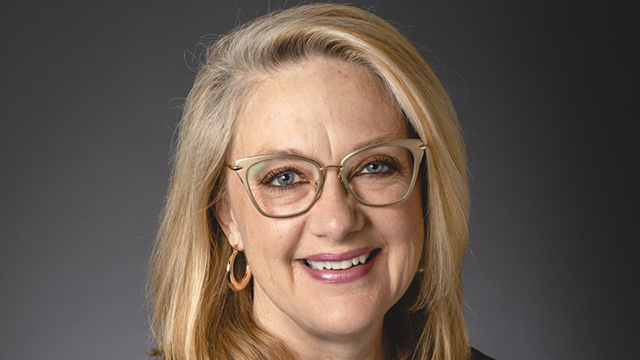homepage | The Big Ask of Leadership
March 1, 2024

How to make the “big ask” of leadership? That’s the question leadership development expert Shannon Swift explores in her upcoming workshop on April 10.
She brings a wealth of experience acquired from working with leaders.
“I have delivered communication skills training in the workplace for over 30 years, helping professionals grow their skills and achieve their potential,” says Swift. “Over ten years ago, I used the process we will cover in this session to help leaders at JP Morgan Retirement Plan Services position cost-saving solutions to their clients, resulting in approximately $5 million of savings. This process worked to help those leaders prepare to influence their clients and say the right things in the right way to get the results they wanted.”
Below, Swift offers insight on how her workshop guides participants through the process and can help build a valuable skill. After all, making a “big ask” takes more than courage to request the funds or resources needed for improvement.
Why is it important to develop the skills to “make the big ask” of leadership?
“This session is about persuading others. Honestly, it’s less about convincing leadership to spend money and more about us analyzing and researching a decision,” explains Swift. “Together, we will thoroughly analyze the pros and cons of taking an action, outline the research regarding those pros and cons, consider the risks of not taking action, and tie our actions back to the goals, strategy, and purpose of the organization.”
“Participants will learn about making a good decision and communicating it in a way that follows a logical flow. It is about convincing ourselves and others that this is the right next step and communicating it in a concise, memorable way,” says Swift.

Why not leave it to someone else? In other words, who can benefit from this course?
We do often leave it to our boss to make the big ask, but why not feed him or her the words to say? This process will help you (and your boss) position your solution as the right next step to take to solve that problem in your organization.
What are some examples of a “big ask” where I might use these skills? Do the skills apply to smaller asks?
Smaller asks might be:
Is this applicable only to a workplace setting? Will people be able to apply these skills in a personal or community/civic role?
The skills we will learn in this session is about understanding others’ priorities and finding ways to connect our needs to their priorities. It can absolutely apply outside of work. Asking your homeowners’ association for another stop sign by your house is an example. Discussing with your spouse whether you should buy the more expensive new tankless water heater is another example. Convincing your spouse to start saving now for the big vacation that you’ve always dreamed of.
What does retired Chief Human Resource Officer Ed Schloesslin contribute to this workshop? Why is he involved?
Ed brings decades of experience sitting with executive teams as they make financial decisions about solutions that will reduce risk and improve the functioning of their organization. He will provide feedback and perspective on what leaders consider in their decision-making process and how to get them to “yes.”
Taking this workshop with guidance in a group setting offers another valuable experience.
“The beauty of learning in a group is that you can use the power of your peers to improve your results,” says Swift. “In this session you will gather feedback each step of the way from your fellow session participants to improve your strategy, increasing the odds that you get the ‘yes’ you are looking for.”
Wednesday, April 10, 2024, 9-11 AM
UMKC TalentLink, 4747 Troost Ave. KCMO